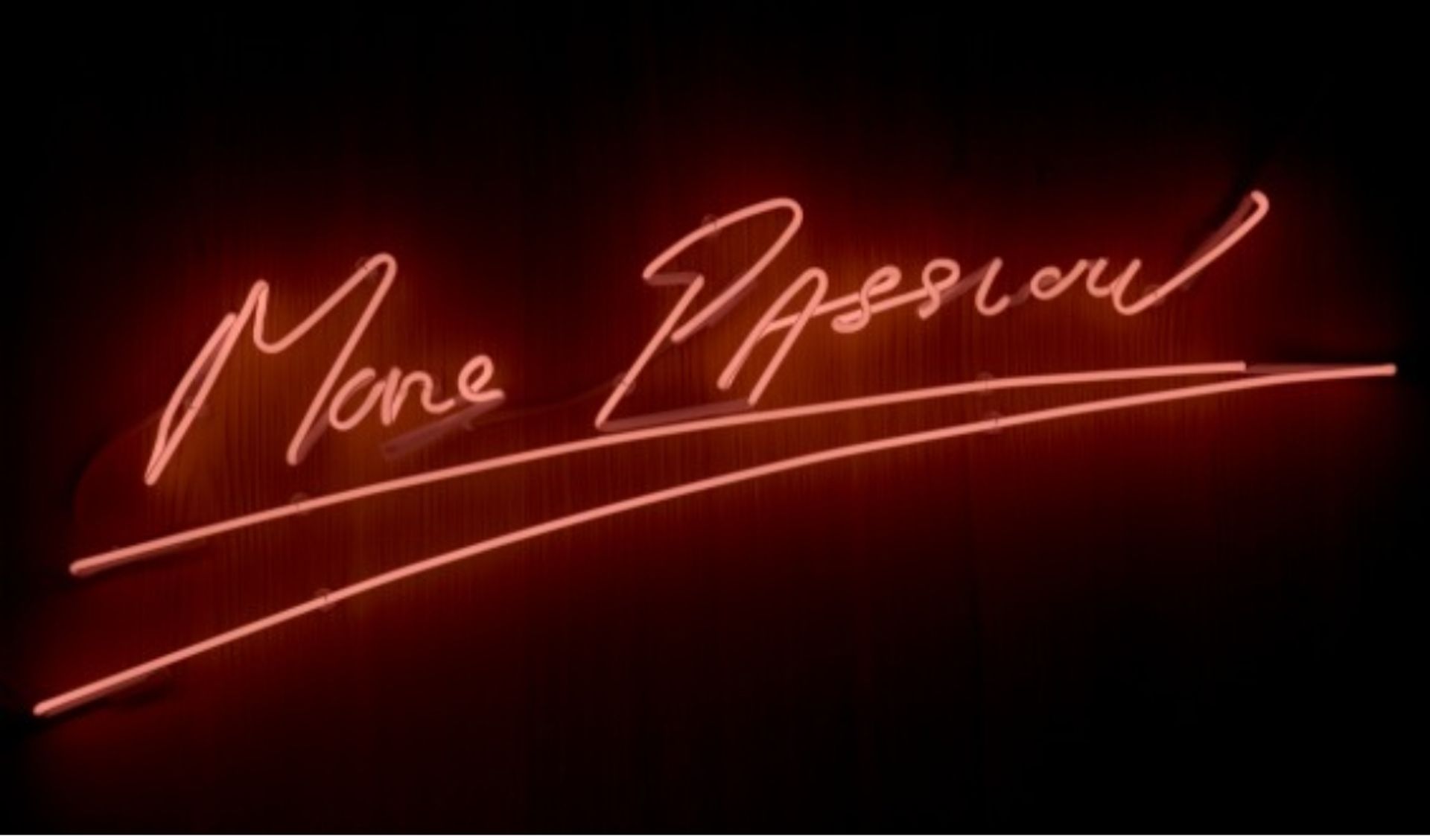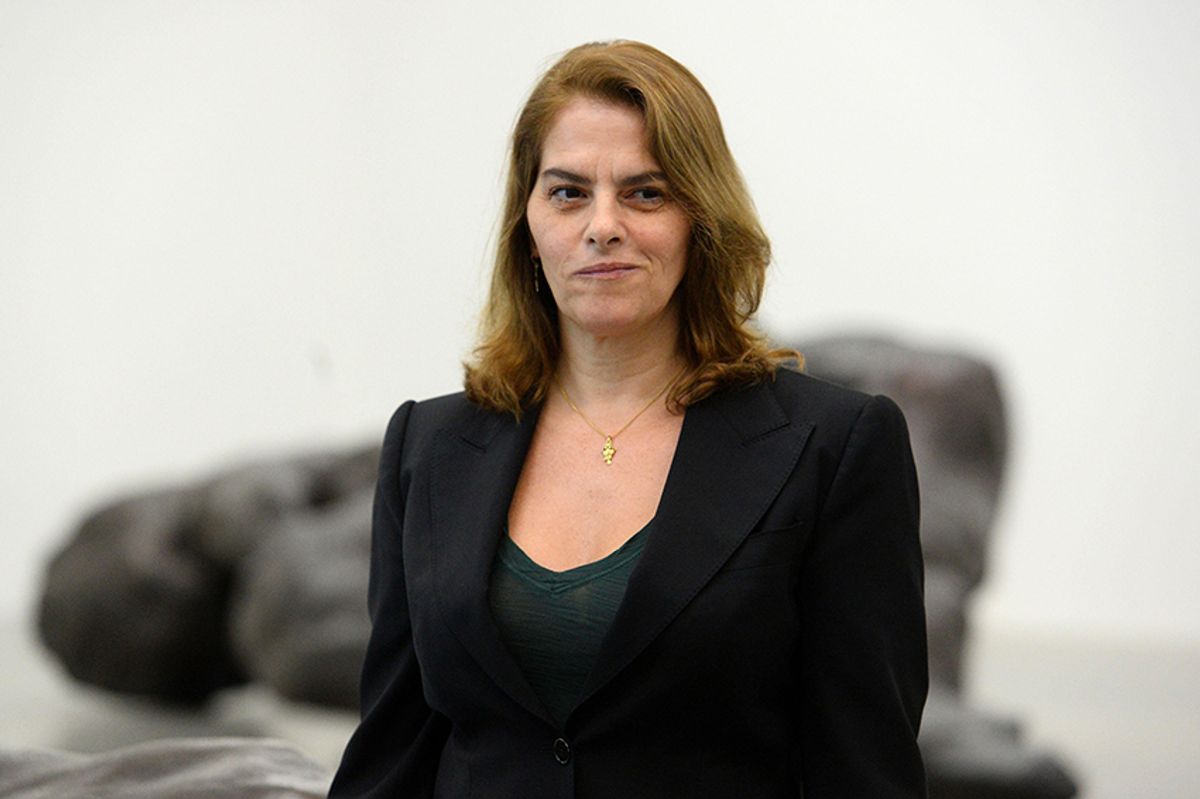The British artist Tracey Emin is demanding that a neon work she gave to the Government Art Collection in 2011 be removed from 10 Downing Street over Prime Minister Boris Johnson’s “shameful” behaviour.
Johnson was forced to admit to parliament last week that he attended a “bring your own booze” party in the Downing Street garden in May 2020, while the country was in lockdown, though he maintains he had not realised it was a social gathering. His former senior aide Dominic Cummings, however, claims Johnson knew the gathering broke the rules.
Speaking to The Art Newspaper, Emin says: “I think lying to people is shameful. People have suffered so much through Covid. They’ve looked to the government for advice, and it turns out that the government has been telling us to do one thing and not doing it themselves. The Queen sat on her own at her husband’s funeral. People had to say goodbye to their parents on their phone. It’s just so irresponsible and disrespectful. It’s shameful.”

Tracey Emin, More Passion (2010) © Tracey Emin. All rights reserved, DACS 2022
Emin’s coral pink neon, More Passion, conjures the themes of love and lust that run through her work, but, in a post on Instagram yesterday, the artist made it clear that such a sentiment is “the last thing this present government needs”.
She adds: “More Passion is about emotions and feelings, and I have a lot of feelings for people. [This government’s] lack of compassion for people is the biggest thing, there’s no contrition whatsoever.”
Neon also has a “feel good factor”, Emin notes. “That’s why neon is in casinos, bars, funfairs, etc, it makes people feel good. I do not think the people in Number 10 need anything to make them feel good, or to feel like partying. I think those feelings should be stripped away immediately."
Emin is not retracting her work from the collection altogether, rather she suggests it could be hung elsewhere—in a British embassy in another country, for instance. “I wouldn’t remove it from the Government Art Collection. It’s there for posterity, for everybody, for the future,” she stresses. “The collection is not just about 10 Downing Street or politicians’ offices. It’s bigger than that. The Government Art Collection is hung in embassies all around the world. Works are loaned to hospitals, schools, all kinds of places.”
Former Prime Minister David Cameron commissioned the work from Emin after he took office in 2010, hanging the neon outside the first floor Terracotta Room at Number 10, which is often used for entertaining. “It was a great privilege to have it hung in Number 10 Downing Street,” Emin says. “I know that my neon was appreciated there. It cheered people up. But they don’t seem to need cheering up now, do they? They seem to be able to cater for that themselves.”
Emin first publicly voiced her support for the Tory party in 2011. Speaking to the Guardian at the opening of her Hayward Gallery retrospective in May that year, she described the Conservatives as “massive collectors of the arts”, and told the newspaper it was the party’s arts policy that led her to vote for them.
It was, Emin says now, a very different time. “When I voted for David Cameron, I voted for them because they promised that they would be a lot more beneficial to the arts, and they were. There were lots of cuts that were supposed to take place. They didn’t make the cuts. They saved museums.” Emin praises the former culture secretary Jeremy Hunt and former culture and digital minister Ed Vaizey—“he was excellent”, she says. “A lot of the people in the government at that time had a much better understanding of art and culture.”
Current Tory policies, meanwhile, are crippling the arts, Emin believes. “Brexit has really fucked up a lot of the culture, everything from opera, to ballet, to musicians and bands touring. It’s become pretty impossible. When they came up with that agreement, they did not give a toss about culture,” she says.
Emin also blasts the government’s decision to keep museums closed during lockdown when retailers were allowed to open. “They would open up shops and have hundreds and hundreds of people in them, but they wouldn’t open up museums and art galleries where the temperature is controlled, where people could have timed slots for viewing. It was like they considered arts and culture to be the same as nightclubs,” she says.
Now more than ever, our art institutions and spaces need investment, Emin adds. “When you are in a terrible recession, one of the things that keeps the country buoyant is its culture,” she says. “The fact that this government is not supporting arts education in schools I find really draconian. It’s just abhorrent.”


